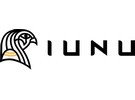"Growers operate much larger facilities than before, but due to the lack of labor available, sampling and measuring in the greenhouse did not grow along with the size of the greenhouse. With our technology, they can scan thousands of plants in a uniform way", says Adam Greenberg with iUNU. The data is used to optimize the climate strategy, to improve yield forecasts, or to quality check the labour. These activities have resulted in activities on 5 continents, and now a $20 million funding round led by S2G Investments ("S2G"), with participation from Farm Credit Canada (FCC) and Lewis & Clark Partners. "We're looking to expand further: increase the velocity of our AI development, and expand our commercial presence."
 © iUNU Inc
© iUNU Inc
 © iUNU Inc
© iUNU Inc
It's not an easy time to raise capital in the CEA industry, but backed by existing and new partners, iUNU managed to do so. Adam explains that their funders see the same potential as iUNU's growing base of clients. "Our industry is wonderful and it has to be scaled up while maintaining profitability, but there are not enough growers to do so. By assisting them and offering insights in their crops easily, we can help them expand their acreage and increase control over their crop. And with energy and labour being the highest costs in greenhouses, our technology can also aid growers in reducing these costs."
iUNU started its greenhouse adventure several years ago in the leafy greens industry and has been growing in the vine crops since the launch of its LUNA platform: a robotic system that measures crops, and an AI-powered data platform that helps growers gain insights. "Back in the '80s, a grower might control two acres and measure 20 plants manually each week. Now they manage much more, but it's hard to gather a representative data set. For one, it's expensive and time-consuming. And it's a task that's vulnerable to inconsistency: humans make mistakes."
By automating crop registration, the sample size can increase significantly, and human error is reduced. "We are seeing 330% growth in our vine-crop segment, driven by a clear need," Adam says. "By combining AI-driven systems and deep industry expertise, we're unlocking unprecedented productivity, sustainability, and profitability for controlled environment agriculture globally."
Insights from the crop
The LUNA platform consists of a robot that drives through the greenhouse and scans the crops using cameras. This robot is connected to an AI-driven data platform. By having crop registration performed by a robot, the monitored area is significantly expanded, checks can be carried out more frequently, and the number of human errors is reduced. The data also no longer needs to be manually entered into Excel files or apps.
LUNA itself offers a comprehensive data analysis tool where growers can view recent crop data at a glance. "For many growers, this is the dashboard that's always open next to the climate computer screen."
The data can also be automatically forwarded to climate control systems such as those from Priva, Hogendoorn, or Ridder, Adam demonstrates. "This way, growers can benefit from our tools without us taking over their climate controls. We don't want to replace what the grower does. We want to be their assistant in growing, and help reduce costs."
Data ownership
Adam emphasizes this also means the data remains in ownership of the grower. "One thing we're especially proud of is respecting data ownership. That's really important to us—growers own their own data. We don't take their recipe and merge it with others. Data ownership matters, and we aim to educate the industry about that. They should maintain and build it. Our role is to help them do that—it's proprietary to them."
 © iUNU Inc Yield forecasts
© iUNU Inc Yield forecasts
With a more representative sample size, the accuracy of yield forecasts improves too. "And every percentage point of increased accuracy in a yield forecast means more money—it enables growers to plan their sales programs more precisely."
Labour quality checks
A relatively new use for the Luna platform is in labour quality checks. "The robot is scanning anyway, so we looked into what else we can do with that data. Labour quality checks are something growers really want," Adam explains. "Again, it's all about insights into the crop. It's not just whether a task has been completed—the quality of the job has a big influence on the final results, but it's hard to track."
"How accurately was pruning done? What's the quality of the deleafing work?", he sums up. "Often, the only data available is whether the task is finished, but that's subjective and doesn't say anything about how well it was done. When you have insight into performance quality, you can improve work through bonuses for top performers, or retrain where the quality is lacking."
Increasing in the sector
With the raised capital, the company is now increasing its presence in the vine crops sector. "We'll expand in size and in presence: we're hiring AI engineers and Canada & EU based salespeople," Adam says. "Our approach is location-specific as I am convinced you have to be present locally to win. The best people to help us scale in the Netherlands are Dutch, and in Canada, they're Canadian."
So far, this strategy has led to iUNU technology being used in 100 facilities across 18 countries. "What I'm most excited about is that we can scan and cover a lot of ground for growers—helping them regain control over their full crop, not just a sample."
A second key area of scaling is increasing the velocity of their AI development of KPIs and metrics —and eventually expanding into new markets. "We're the largest data capturing and sampling company in the world when it comes to data, analysis, and understanding, and we're looking to bring that to mid-tech as well."
For more information:
IUNU
info@iunu.com
iunu.com
